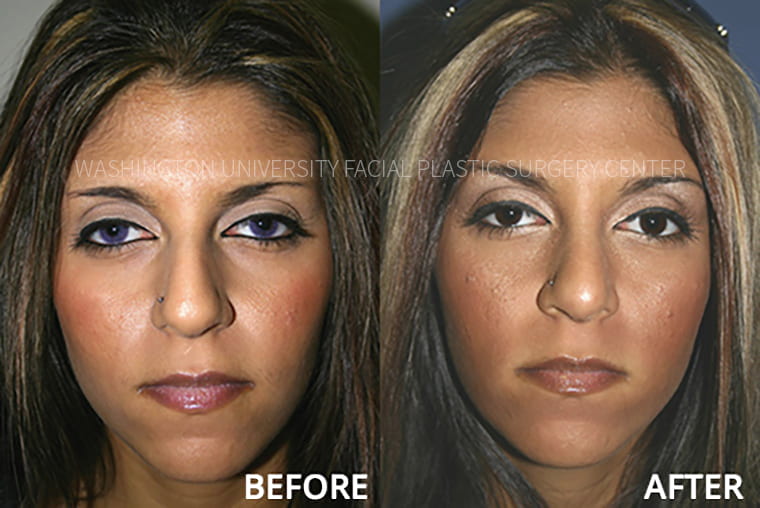A Deep Dive Into the Typical Justifications for Seeking Plastic Surgery: Unpacking the Wish for Change and Self-Improvement

Social Pressures and Elegance Requirements
Frequently, societal pressures and dominating beauty criteria play a considerable role in individuals' decisions to seek cosmetic surgery (liposuction bellevue). In contemporary culture, graph greatly affects individual assumptions of good looks, usually bolstered by media, celeb endorsements, and social platforms. These networks regularly promote idealized variations of beauty, leading individuals to internalize these standards and review their self-regard versus them

In addition, these stress are not limited to certain demographics; they impact individuals throughout different ages, genders, and backgrounds, highlighting the prevalent nature of appeal requirements. This widespread influence increases essential questions concerning the principles of cosmetic surgical procedure and the ramifications of societal criteria on private choices. Eventually, recognizing these stress is critical for promoting a more comprehensive meaning of beauty that commemorates diversity.
Individual Experiences and Transformative Stories
Lots of people who undergo plastic surgery report transformative experiences that expand beyond simple physical adjustments. For several, these procedures offer as a driver for boosted self-confidence and a renewed feeling of identity. Individuals frequently define sensation liberated from long-standing insecurities, resulting in raised confidence in both personal and expert worlds.
Take, as an example, the tale of a young woman that underwent breast enhancement after years of sensation uneasy about her appearance. Post-surgery, she reported not just a newly found convenience in her body yet likewise a significant enhancement in her social life and career chances. Similarly, a middle-aged guy that picked to undergo a renovation shared how the procedure renewed his expectation on life, prompting him to go after brand-new interests and connections.

Mental Aspects Behind Aesthetic Surgical Treatment
Numerous mental variables contribute to the decision to undertake plastic surgery, showing deeper mental and emotional wellness considerations. Individuals usually pursue surgical enhancements as a way to address feelings of inadequacy, low self-worth, or frustration with their appearance. These mental motivations can be rooted in past experiences, social comparisons, or individual ambitions.
Body image distortion is a prevalent issue, where individuals perceive their physical characteristics in an exaggeratedly negative light. This distortion can result in obsessive thoughts about perceived defects, prompting the desire for surgical alteration as a service. Additionally, the search of perfection and societal pressures can amplify these sensations, pressing people towards aesthetic procedures in hopes of achieving an idealized variation of themselves.
Moreover, the concept of self-improvement plays an important function. Numerous individuals view cosmetic surgery as a path to boost their high quality of life, believing that improved look will certainly cause boosted social approval, much better connections, or boosted career possibilities. Eventually, the mental factors behind cosmetic surgery highlight the complicated interplay in between individual self-perception and exterior impacts, revealing the multifaceted nature of the need for modification.
The Role of Media in Assumption
In today's culture, media plays a crucial duty fit assumptions of elegance and self-respect. Via different platforms-- social media sites, tv, and advertising-- idyllic requirements of elegance are usually distributed, influencing specific goals and self-image. These representations often stress slim meanings of beauty, predominantly including vibrant, slim, and digitally improved images, which can produce impractical criteria for people striving to adapt.
The effect of media is additional exacerbated by the prevalent nature of social networks, where customers are bombarded with curated web content that highlights cosmetic enhancements, recommending a helpful hints society of comparison. This consistent direct exposure can result in sensations of insufficiency amongst viewers, triggering them Get More Information to take into consideration plastic surgery as a way of attaining the viewed perfect. Research suggests that individuals that involve with these media depictions are more probable to reveal frustration with their appearance, strengthening the wish for medical treatments.
Moreover, the normalization of cosmetic surgical treatment in media stories can desensitize target markets, framing such treatments as commonplace and also required for social approval. Therefore, the media's portrayal of appeal not only influences individual options concerning cosmetic surgical procedure but also contributes to a broader societal discussion concerning self-regard and identity.
Future patterns and moral factors to consider
Amidst the growing popularity of cosmetic surgery, ethical considerations bordering the technique have ended up being increasingly popular. As the demand for treatments climbs, so as well do issues regarding informed consent, the emotional inspirations of clients, and the potential for exploitation by surgeons. It is important for professionals to guarantee that patients totally comprehend the risks and benefits, as well as the effects of their options, to cultivate a liable method to aesthetic improvements.
Furthermore, the impact of social media and beauty requirements raises inquiries regarding the influence on psychological health, especially among at risk populations. As recognition of body picture issues grows, moral method demands a cautious assessment of the inspirations behind surgical treatments. Surgeons need to balance individual desires with honest obligation, making certain that choices are rooted in authentic self-improvement rather than societal stress.
Wanting to the future, fads may shift in the direction of non-invasive and technologically advanced treatments, stressing client safety and security and fulfillment. Additionally, the consolidation of emotional evaluations might assist resolve underlying concerns prior to surgical intervention. The plastic surgery area have to adapt to these ethical difficulties while advertising a society of transparency and self-acceptance, eventually focusing on the wellness of people.
Conclusion
To conclude, the pursuit of cosmetic surgery is influenced by an assemblage of societal stress, individual experiences, and emotional aspects. The wish for positioning with dominating beauty criteria, paired with the possibility for transformative results, highlights the intricate inspirations driving people towards these procedures. Additionally, the role of media fit perceptions of beauty can not be underrated. As moral factors to consider develop, future trends in plastic pop over to this site surgery will likely reflect recurring societal dialogues bordering self-improvement and private identity.
Frequently, social pressures and dominating beauty criteria play a significant duty in individuals' choices to go after cosmetic surgery. liposuction bellevue. Inevitably, these transformative stories highlight the complex reasons individuals look for cosmetic surgical treatment, intertwining individual growth with the search of aesthetic enhancement
Numerous people check out cosmetic surgery as a path to boost their high quality of life, thinking that improved look will lead to enhanced social approval, better connections, or boosted job possibilities. Inevitably, the psychological elements behind cosmetic surgical procedure underscore the complicated interplay between private self-perception and exterior impacts, revealing the diverse nature of the need for adjustment.
As ethical factors to consider develop, future fads in cosmetic surgical procedure will likely show ongoing societal dialogues bordering self-improvement and private identity. liposuction bellevue.